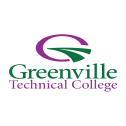What do they do?
Represent and promote artists, performers, and athletes in dealings with current or prospective employers. May handle contract negotiation and other business matters for clients.
Also known as:
Agent, Artist Manager, Artist Representative, Athlete Marketing Agent, Booker, Booking Agent, Business Manager, Entertainment Agent, Entertainment Specialist, Literary Agent, Print Agent, Talent Agent, Talent Booker, Talent Manager, Talent Representative, Theatrical Agent
-
0%
Change
Ranks #32 in job growth rate10Job Openings
Ranks #29 in net job growth
Colleges with the most graduates that become Agents and Business Managers of Artists, Performers, and Athletes
Looking for colleges that offer a specific major? Use the College Match Tool to find your best-matched schools and discover your estimated Net Price!
- Bachelor's degree (50%)
- Some college, no degree (17%)
- Master's degree (12%)
- High school diploma equivalent (10%)
- Doctorate or Professional Degree (5%)
- Associate's degree (4%)
- Less than high school diploma (2%)
Most Popular Majors that prepare Agents and Business Managers of Artists, Performers, and Athletes
-
#1
-
Degrees Granted
53
-
Female Students
19
-
Male Students
34
-
Median Starting Salary
$39,600
-
-
#2
-
Degrees Granted
25
-
Female Students
12
-
Male Students
13
-
Median Starting Salary
$39,500
-
-
#3
-
Degrees Granted
7
-
Female Students
1
-
Male Students
6
-
Median Starting Salary
$41,400
-
People in this career often have these skills:
- Reading Comprehension - Understanding written sentences and paragraphs in work-related documents.
- Active Listening - Giving full attention to what other people are saying, taking time to understand the points being made, asking questions as appropriate, and not interrupting at inappropriate times.
- Speaking - Talking to others to convey information effectively.
- Persuasion - Persuading others to change their minds or behavior.
- Negotiation - Bringing others together and trying to reconcile differences.
- Social Perceptiveness - Being aware of others' reactions and understanding why they react as they do.
- Critical Thinking - Using logic and reasoning to identify the strengths and weaknesses of alternative solutions, conclusions, or approaches to problems.
- Coordination - Adjusting actions in relation to others' actions.
- Time Management - Managing one's own time and the time of others.
- Writing - Communicating effectively in writing as appropriate for the needs of the audience.
- Active Learning - Understanding the implications of new information for both current and future problem-solving and decision-making.
- Complex Problem Solving - Identifying complex problems and reviewing related information to develop and evaluate options and implement solutions.
People in this career often know a lot about:
- Customer and Personal Service - Knowledge of principles and processes for providing customer and personal services. This includes customer needs assessment, meeting quality standards for services, and evaluation of customer satisfaction.
- Sales and Marketing - Knowledge of principles and methods for showing, promoting, and selling products or services. This includes marketing strategy and tactics, product demonstration, sales techniques, and sales control systems.
- English Language - Knowledge of the structure and content of the English language including the meaning and spelling of words, rules of composition, and grammar.
- Administration and Management - Knowledge of business and management principles involved in strategic planning, resource allocation, human resources modeling, leadership technique, production methods, and coordination of people and resources.
- Fine Arts - Knowledge of the theory and techniques required to compose, produce, and perform works of music, dance, visual arts, drama, and sculpture.
- Communications and Media - Knowledge of media production, communication, and dissemination techniques and methods. This includes alternative ways to inform and entertain via written, oral, and visual media.
- Administrative - Knowledge of administrative and office procedures and systems such as word processing, managing files and records, stenography and transcription, designing forms, and workplace terminology.
People in this career often have talent in:
- Oral Expression - The ability to communicate information and ideas in speaking so others will understand.
- Oral Comprehension - The ability to listen to and understand information and ideas presented through spoken words and sentences.
- Written Comprehension - The ability to read and understand information and ideas presented in writing.
- Problem Sensitivity - The ability to tell when something is wrong or is likely to go wrong. It does not involve solving the problem, only recognizing that there is a problem.
- Speech Recognition - The ability to identify and understand the speech of another person.
- Speech Clarity - The ability to speak clearly so others can understand you.
- Deductive Reasoning - The ability to apply general rules to specific problems to produce answers that make sense.
- Written Expression - The ability to communicate information and ideas in writing so others will understand.
- Inductive Reasoning - The ability to combine pieces of information to form general rules or conclusions (includes finding a relationship among seemingly unrelated events).
- Near Vision - The ability to see details at close range (within a few feet of the observer).
People in this career often do these activities:
- Collect payments for goods or services.
- Perform marketing activities.
- Distribute promotional literature or samples to customers.
- Update professional knowledge.
- Conduct eligibility or selection interviews.
- Arrange collective bargaining agreements.
- Correspond with customers to answer questions or resolve complaints.
- Develop business relationships.
- Organize special events.
- Implement financial decisions.
- Market products, services, or events.
- Administer personnel recruitment or hiring activities.
- Prepare financial documents.
- Inspect facilities or equipment to ensure specifications are met.
- Advise others on legal or regulatory compliance matters.
- Recommend investments to clients.
This page includes data from:

 Occupation statistics: USDOL U.S. Bureau of Labor Statistics Occupational Employment Statistics
Occupation statistics: USDOL U.S. Bureau of Labor Statistics Occupational Employment Statistics
 Videos: CareerOneStop, USDOL/ETA and the Minnesota Department of Employment & Economic Development
Videos: CareerOneStop, USDOL/ETA and the Minnesota Department of Employment & Economic Development








